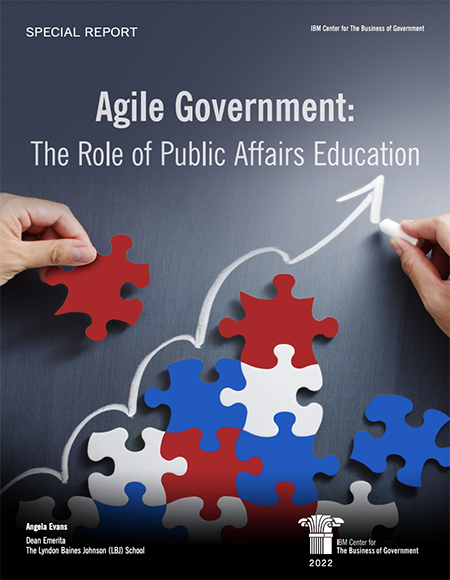Report
Agile Government: The Role of Public Affairs Education: A report of the IBM Center for The Business of Government

Intentional, sustained exchanges of expertise and ideas among public administrators, policy making communities, and academia have few channels that bring research and formal educational programming to practice on a consistent and enduring basis. At best, this absence of regular exchange leads to serendipitous contributions to those working on policy, with the aim of developing and sustaining reasoned approaches to policy problems. For those in public administration, the lack of long-term relationships with academia erodes the ability to create effective and agile public governance. Too often this leads to an impoverished policy dialog, a moribund administrative environment, and diminished reliability and quality of public services.
The most significant challenges facing public administration today include the isolation of public servants, the rigidity of the administrative and regulatory systems in which they operate, and the lack of opportunity to develop relevant and emerging competencies. The persistence of these challenges has resulted in public management failures of enormous consequence (such as unchecked pollution, and a crumbling infrastructure). These failures have cost lives and livelihoods, and further eroded the public's trust in government. Despite such recurring shortfalls, the public administration field continues to struggle to correct them.
Restoring belief that public service is critical to the preservation and endurance of democracy requires breaks from the operational status quo and adoption of bold and risky strategies. Professional training that develops new expertise, showcases relevant knowledge resources, and builds networks of skilled, agile leaders, can seed agility and foster resiliency in public administration.
Currently, ten working principles form the basis for promoting agile governance. These include establishing clarity of mission and expediency in achieving it, using metrics to demonstrate success, being persistent in the face of failure, forming collaborations of highly skilled cross-functional teams, and perhaps most important of all, championing innovation. While these principles do not convey new concepts, taken together they outline an actionable framework for achieving agile governance.

